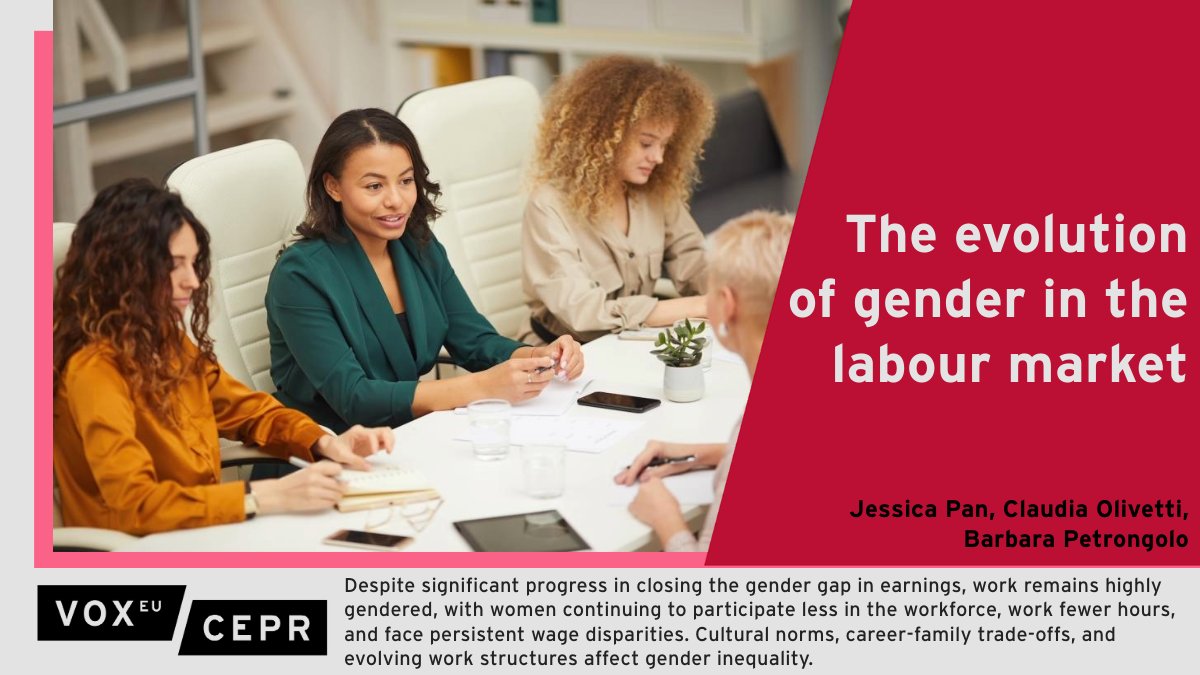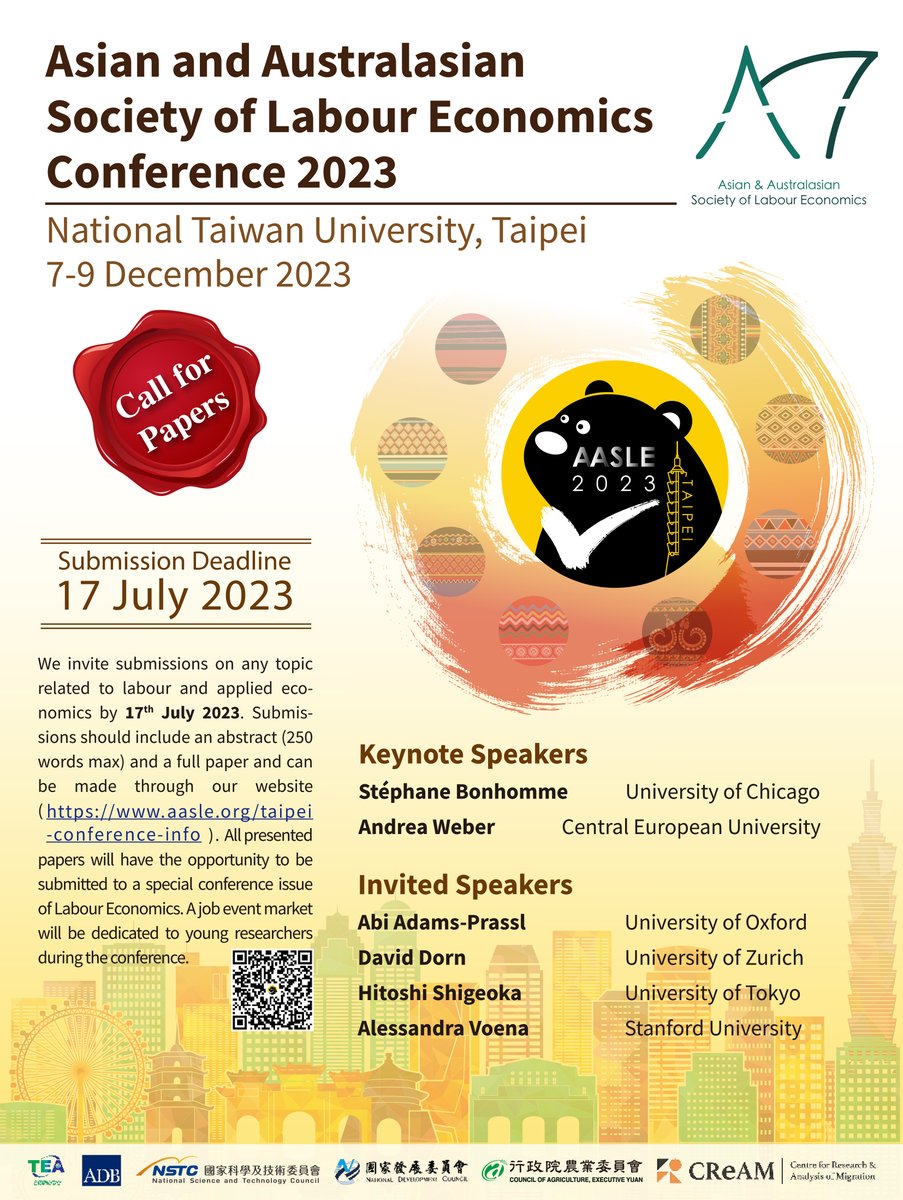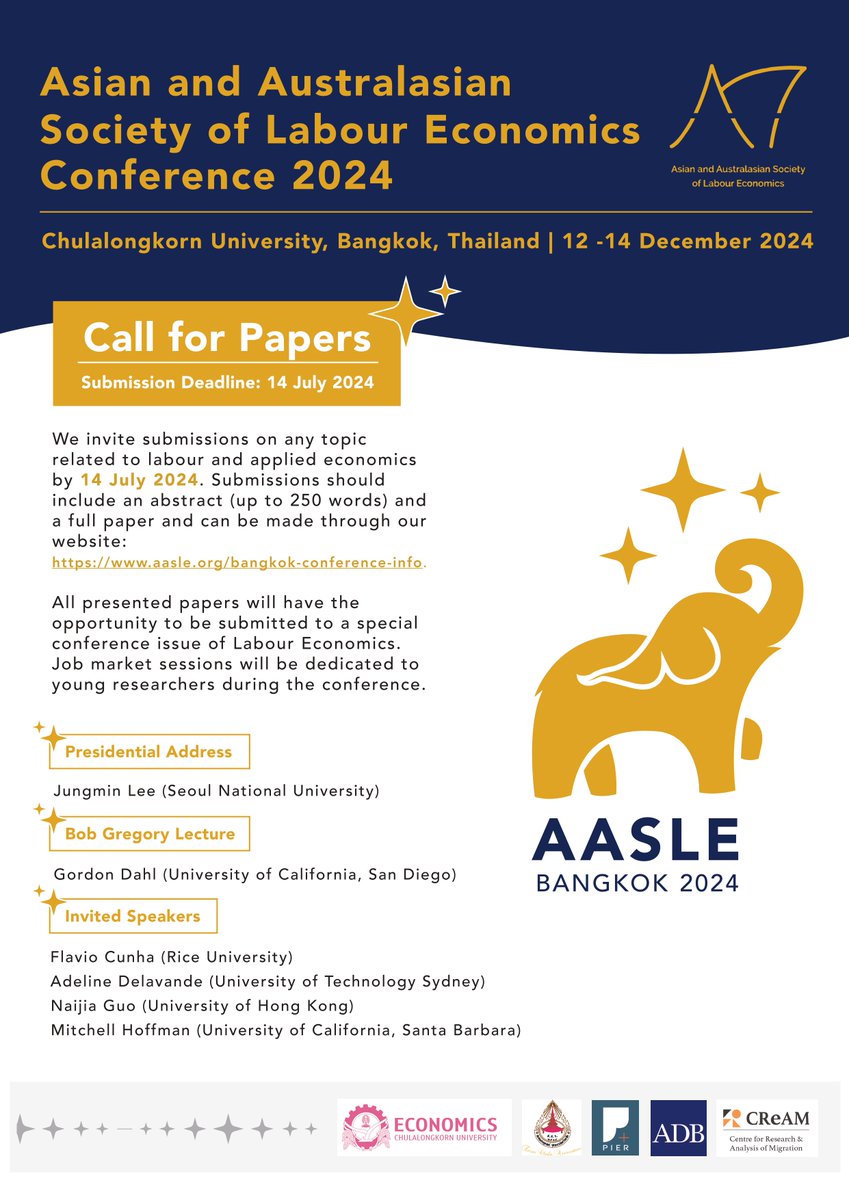
Jessica Pan
@jesspan13
Professor of Economics National University of Singapore
ID: 1111737600157630466
29-03-2019 21:11:13
40 Tweet
887 Followers
140 Following


We hope everyone enjoyed it, shared ideas and will join us next year in Taipei for what we hope will be a fully in-person event organised by Ming-Jen Lin and his team #EconTwitter


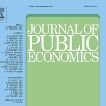
Recently published paper in the Journal of Public Economics : "The Returns to an Additional Year of Education for College Graduates" Vol 218 (Feb 2023) by Jie Gong & Jessica Pan (Jessica Pan NUS ) sciencedirect.com/science/articl…

While the average American woman’s SES seems to have improved over the past 50 years, less attention is given to the vast differences between states. Kerwin Charles, Jonathan Guryan & Jessica Pan how a region's level of #sexism affects women’s outcome. doi.org/10.3368/jhr.09…



One week ago, we had the pleasure of hosting a fantastic assembly of researchers at the Conference for the Handbook of Labor Economics in Berlin. We're excited about the exceptional content coming to the Handbook! #HandbookLaborEconomics Humboldt-Universität zu Berlin @BSE_Berlin


NUS economists in AASLE 2023 in Taipei! Asian and Australasian Society of Labour Economics


Day 2 of #AASLE2023 concluded with a great dinner! Join us tomorrow for the last day of the conference with more parallel talks and the Asian Development Bank panel on labor market challenges in aging societies #EconTwitter
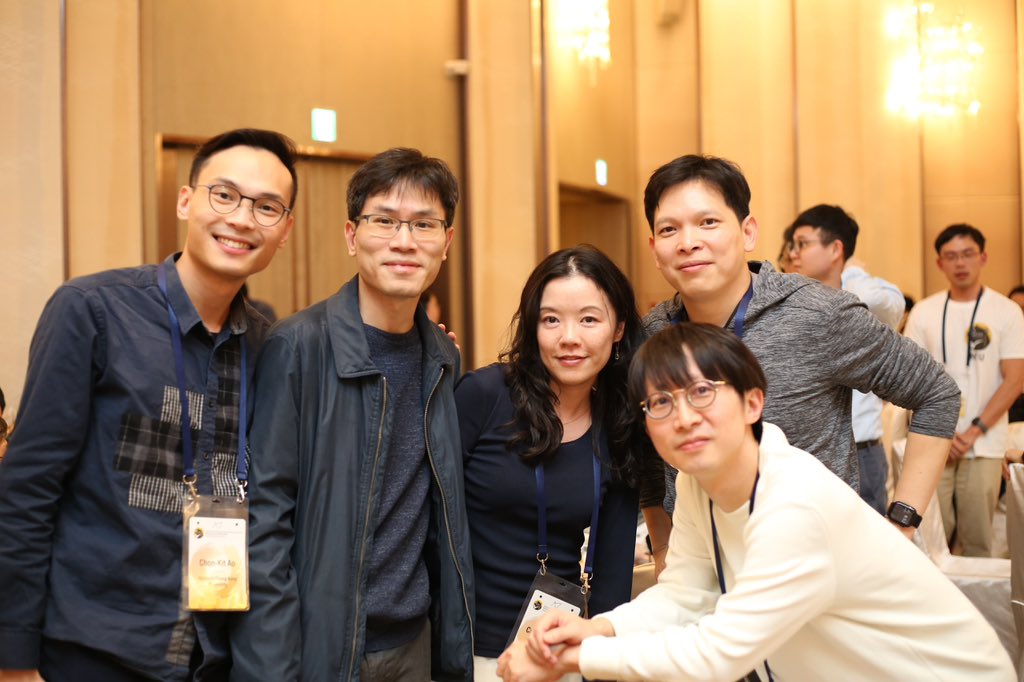



Check out my new working paper on automation and gender, with amazing co-authors Ying Feng, Nicolas Guida-Johnson, and, of course, Jessica Pan !!



The past 50 years have seen progress in gender equality in the labor market. But which policies have been most effective in closing the gender gap? Barbara Petrongolo and Jessica Pan Jessica Pan address this complex question in a new episode of our podcast series the Handbook



Our paper on misperceptions about the social norms on maternal labor supply is forthcoming at The Review of Economics and Statistics (REStat)!

Women still participate less in the workforce, work fewer hours, & face persistent wage gaps. Cultural norms, career-family trade-offs, and evolving work structures all play a role. Jessica Pan, C Olivetti DartmouthEcon, B Petrongolo Nuffield College ow.ly/nvEx50ULHzX
